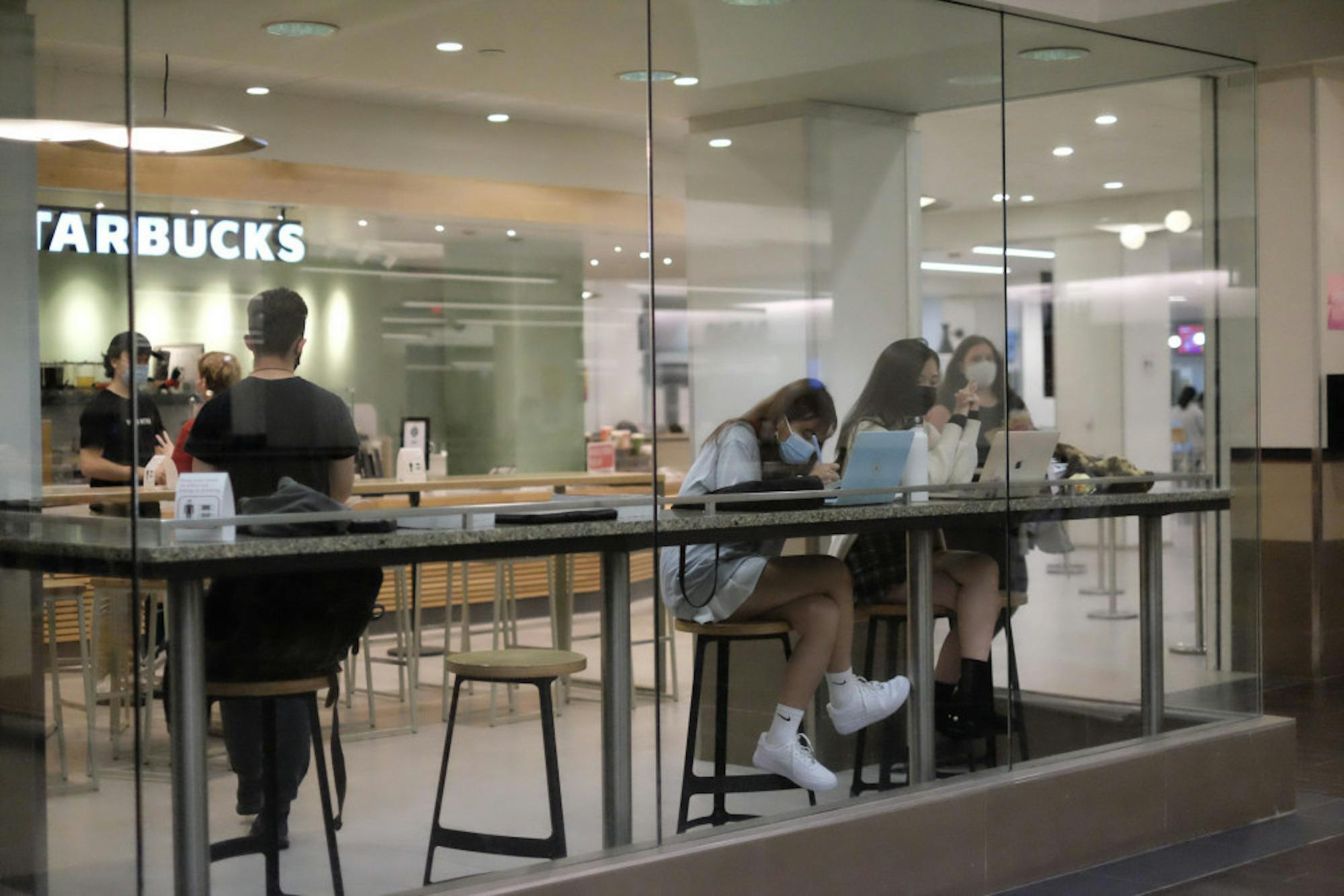Local mask mandates for public indoor areas were reinstated on Aug. 20 in Somerville, Aug. 27 in Boston and Sept. 10 in Medford. The reinstatement of these mandates follows a resurgence of COVID-19 cases in Massachusetts counties, largely due to the Delta variant.
For these indoor mask mandates, the definition of “public locations” is similar in the cities of Somerville and Medford, referring to stores, public transportation and event venues, according to Doug Kress, director of health and human services for the City of Somerville.
“Public location is defined as any place open to the public, including, but not limited to, grocery stores, pharmacies, and other retail stores, public transportation, taxis, livery, and other ride sharing vehicles, and any location, including hotels, motels, event venues, and private clubs that host indoor events or performances,” Kress said in an email to the Daily.
The Medford mask mandate, described by MaryAnn O’Connor, director of public health for the City of Medford in an email to the Daily, shares a similar view of what constitutes "public indoor spaces."
“The term ‘public indoor spaces’ shall include all places into which members of the public are invited or otherwise allowed to enter a building or structure to interact with any persons in order to or transact any public or private business,” the Medford mask mandate states. “This includes, but is not limited to, restaurants, bars, offices, social clubs, grocery stores, pharmacies and other retail establishments, indoor performance and event venues, hotels, gyms, fitness clubs, barber shops, hair and nail salons, dance studios and places of worship.”
However, there are some differences between the Somerville and Medford mask mandates, such as the maximum age for a child who is exempt from the mandate. In Medford, everyone over the age of five must wear a mask, while in Somerville the policy applies to children ages two and up.
Both mask mandates point to the efficacy of masking in preventing the spread of COVID-19 — as well as the ongoing nature of a public health emergency.
“The incidence of the Covid-19 virus, and deaths, hospitalizations and serious illness related to the virus, continues in the City of Somerville and the Commonwealth ... these recommendations observe that covering an individual’s nose and mouth can reduce the chance of spreading the virus,” the Somerville mandate states.
The Medford mandate also emphasized the importance of masking given the increased prevalence of the Delta variant.
“We know that masks slow or prevent transmission of all COVID-19 variants so far ... as we see cases rise in surrounding Massachusetts counties and communities including ours, following this season of summer travel and gatherings, we are committed to preventing and/or limiting transmission,” the Medford mandate states.
In addition to municipal legislation, Somerville has mobilized community members to promote the use of masks. Kress spoke to the educational role of COVID-19 ambassadors in Somerville — while acknowledging that their main role is not enforcement of the masking policy.
“[COVID-19 ambassadors] are part of the educational effort to inform residents, [businesses] and visitors to follow the mask order," Kress wrote. "Ambassadors have masks available for those without [them], however they are not the enforcing entity."
O’Connor believes that most businesses have continued to adequately mask in order to protect their personnel and remain in compliance with federal guidance on masking.
“I feel most retail establishments have kept employees masked as a way to protect [them] and some have continued to encourage customers to wear [masks] in accordance with CDC recommendations,” O’Connor wrote.
Tufts’ decisions about campus COVID-19 policies are impacted by the decisions and guidance of local agencies, according to University Infection Control Health Director Michael Jordan and Medical Director of Health Service Marie Caggiano.
“Tufts public health policies are developed in collaboration with local Boards of Health and with the input of our own public health experts," Caggiano and Jordan wrote in a statement to the Daily. "Currently, like Tufts, both Somerville and Medford have indoor masks policies in effect."
In addition to collaboration with local agencies, data from on-campus COVID-19 tests provide a baseline from which to create policies.
“We closely analyze our surveillance testing data, including prevalence and patterns of transmission, which inform our decisions on when to enhance or relax our guidelines depending on how the data is trending,” Caggiano and Jordan said.
Nonetheless, Tufts will continue to follow the advice of state, federal and global agencies in managing and preventing the spread of COVID-19.
“Tufts also collaborates closely with local public health authorities, including Boards of Health and the Massachusetts Department of Public Health, in the development of the University’s COVID-19 policies," Caggiano and Jordan said. "We are constantly reviewing the available body of scientific evidence and guidelines published by national and global health agencies including the U.S. Centers for Disease Control and World Health Organization."






